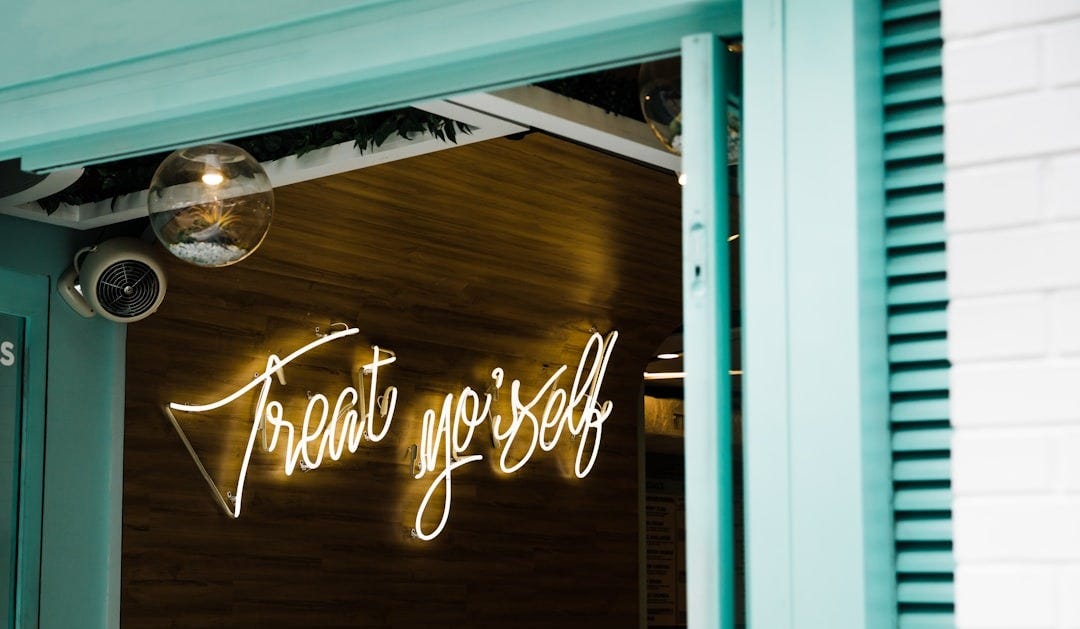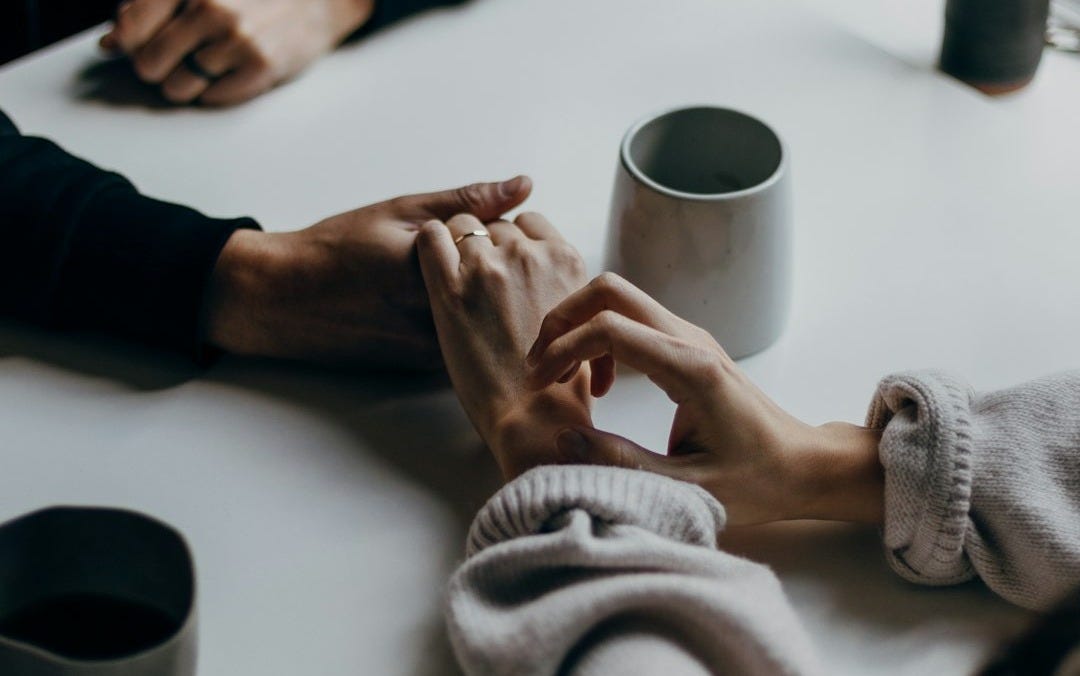You’re Not Failing—You’re Just Living In a Culture That Profits Off Your Self-Doubt
Being kind to ourselves should not be such a radical act; and yet, here we are.
Growing up, most of us heard these reminders: “Treat people the way you want to be treated.” “If you don’t have anything nice to say, don’t say anything at all.” But when it comes to how we treat ourselves? The rules seem to change.
Why is it so hard to be kind to ourselves?
Because we’ve been taught that our worth is something we have to earn. From an early age, we’re conditioned to believe that achievement, appearance, and control determine our value. Diet culture, in particular, insists that if we just try hard enough—if we shrink ourselves, discipline ourselves, fix ourselves—we’ll finally be worthy of love and acceptance. We’re told that our bodies are problems to solve, that struggling is a sign of weakness, and that self-compassion is indulgent rather than necessary. When kindness toward ourselves feels unnatural, it’s not because we’re failing—it’s because we’re unlearning a lifetime of conditioning that told us we don’t deserve it.

That conditioning is reinforced by the illusion of control, a tool that keeps self-compassion at a distance. Diet culture thrives on the promise that if we try hard enough, we can manipulate our bodies to fit an impossible standard. But when that inevitably fails—because bodies are meant to change—it doesn’t just feel disappointing. It feels personal. Like we weren’t strong enough, smart enough, or good enough to make it work.
And make no mistake—this belief doesn’t stay neatly contained within diet culture. It burrows into our sense of worthiness, making us question whether we deserve care, rest, or kindness at all. It disconnects us from our own bodies, pulling us further from the very embodiment that could help us heal.
In fact, many of us have had moments (if not decades) where it feels like our body has literally turned against us.
Whether it’s chronic illness, injuries, wrinkles, or weight changes, any shift outside of our control can make us feel disconnected from ourselves. It’s easy to fall into resentment, to feel betrayed by a body that won’t “behave,” to buy into the idea that we were meant to spend our lives taming this vessel we live in.
In a session last week, I (half) jokingly said to my client: “If someone punched you, would you then decide to punch yourself?” It sounds a bit strange, and yet it’s exactly the scenario we’re living in every day. We get beat up by diet culture, and then beat up ourselves for how we feel as a result. That’s not the answer to a broken system.
Healing our relationship with our body can’t ultimately be found in fixing or criticizing our body.
It’s about shifting how we relate to it, how we treat it, how we inhabit it. Instead of criticizing and fighting our body, we can start asking, How can I support you?
And believe me when I say that I know,this kind of self-respect does not come naturally. When we’ve been taught to second-guess our own suffering, we learn to gaslight ourselves into believing our struggles aren’t “bad enough” to deserve care. We minimize our pain, compare it to others, and convince ourselves that we should just “push through.”
But suffering doesn’t need a ranking system. Your pain matters, no matter what someone else is going through. And surrounding ourselves with people who validate that—who remind us that we don’t have to earn kindness—can make all the difference.
The truth is, we don’t heal in isolation. We like to think of this work as a solo pursuit — something we have to figure out on our own. But we actuallty learn how to be kind to ourselves by witnessing kindness in others. We see someone move through a hard moment with self-compassion, and it gives us permission to do the same. We feel seen and understood in a community, and suddenly, we aren’t just carrying the weight alone.
I honestly believe that we have absolutely nothing to lose by being kinder to ourselves.
Yes, it’s hard to be gentle with ourselves in a culture that equates worth with productivity, starvation with health, and struggle with weakness. And because of that, self-compassion will feel unnatural at first. After all, it asks us to reject the very things we’ve been taught to believe — the very things we were sold in the name of safety and belonging.
But true belonging should not require self-abandonment.
Life is messy. Bodies change. Hard things happen. And none of it makes us less worthy of care.
So, what if we stopped waiting to “deserve” rest, joy, or nourishment? What if we offered ourselves the same kindness we extend so easily to others? What radical word-changing magic might happen then?
In a culture that continues to profit off of your shame and self-doubt (that, by the way, it created in the first place), gently consider:
Maybe healing isn’t about “improving” yourself at all. Maybe it’s about finally seeing yourself as someone worth caring for.
If you’re interested in how to actually put self-compassion into practice — without it feeling phony or forced, I think you’ll love this week’s episode of Full Plate Podcast.




![#160: What Does It Really Take to Heal? [Abbie Interviewed on Self-Compassion, Health Anxiety, and Reclaiming Body Connection on The Feeling Lighter Podcast]](https://substackcdn.com/image/fetch/$s_!1h7D!,w_140,h_140,c_fill,f_auto,q_auto:good,fl_progressive:steep,g_auto/https%3A%2F%2Fsubstack-post-media.s3.amazonaws.com%2Fpublic%2Fimages%2F9dfa1cff-bd85-427b-a1c5-7549fbfcd8c7_3000x3000.png)


I’ll start this comment by saying I never would say the things I say to myself or expect myself to do…..to anyone else in this world.
BUT how I treat myself has been the exception my whole life because “my body is that bad” or “ I have it in me and I’m capable of making my self look a certain way…. Be grateful you can move and suck it up big boy”.
I am 31 and married now. I’d like to have kids. I am just beginning my recovery journey. I’ve been told since I was 12 years old that my body didn’t meet certain standards. I built my entire life and work career around changing my body and earning social currency. I literally became a semi pro athlete and professional coach just because I wanted to prove I could look a certain way and be accepted as cool.
Woof. My 20s were a roller coaster of manic training and work and then off seasons of hiding, binging and shame. And then re-upping for a new season.
I spent the past few years taking my foot off the gas. I left that career. My body started to revert to its normal self. And I immediately found other “coping” mechanisms that were disguised as “healing my image” but really it was just more dysfunction and a yearning for validation. And trying to fight my body from gaining weight.
I’m now in it. I’ve started working on this with professional help. And every day after work when it’s free time is the hardest part of the day. When my mind is free to roam. No healthy distraction.
I have no sense of what my natural body should look like or feel like. Or even what I naturally want to do with my free time and energy.
All I feel is that shame and pressure to go back into the system that landed me here in the first place. Letting go of something so learned is incredibly hard. It’s just there always…Trying to convince myself “why I should do a workout, go back on a diet, or rejoin a gym…I’ll do it different this time”.
It’s all trying to conform.
And I’ll leave you with this. And it’s the hardest thought/false equivalency that keeps running through my mind:
I’m on anxiety medication. It has saved my life by allowing me to work on my anxiety directly versus be stuck in constant panic cycle.
I had a GP doctor tell me for that same reason I take anxiety meds….I should take GLP-1s. To not have to worry about workouts and my diet. Plus mitigate any danger of being bigger like pressure on joints or pre diabetes. She diagnosed me as obese. Even after complementing how much I workout or eat well.
Nothing is actually wrong with my body like it is when it comes to my anxiety disorder. I’d say GLP-1s for aesthetic is very different from actually taking meds for a chronic anxiety disorder.
BUTTTT on the other spectrum, I had a trainer tell me don’t take those GLP-1s. Your doctor is going to debilitate you with something not natural. They are so dangerous for you….”You just need to eat clean like you’ve been taught, food is fuel, and workout hard. You move so well in the gym. You’ll be fine.
I don’t want to be grinding in the gym. I’m tired of it.
Both people in different ways and on opposite spectrums are telling me smaller and cut is better than my natural body. And I’m in danger if I don’t do something.
That’s hard.
Thank you for pointing out the systemic issues at play, Abbie! It's so easy to personalize far too much when we're working on tender issues. I really appreciate this perspective.